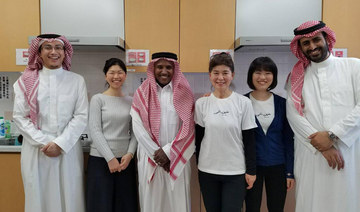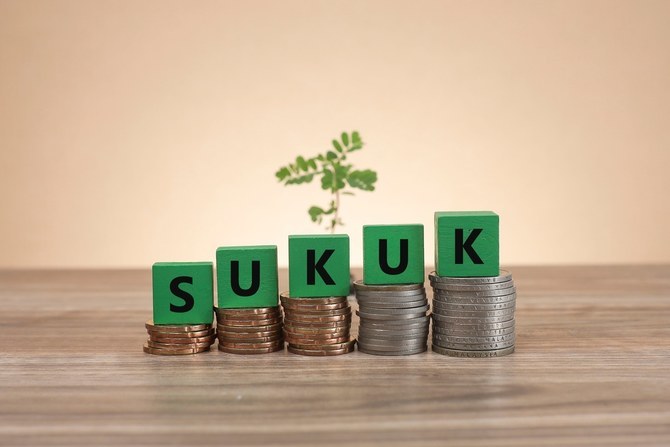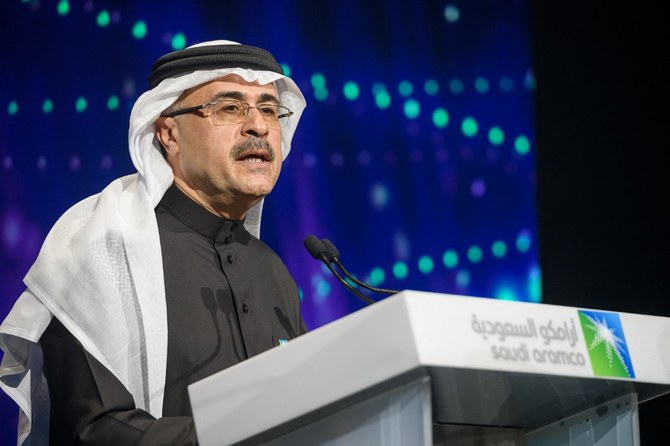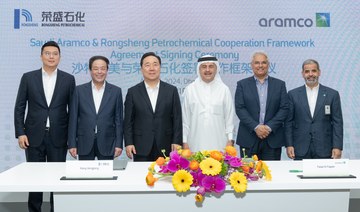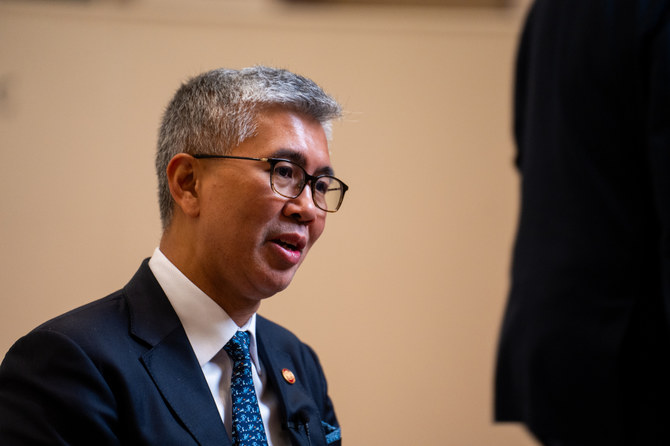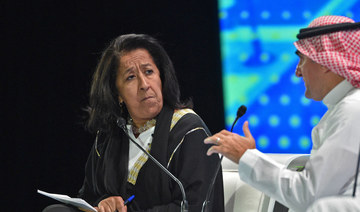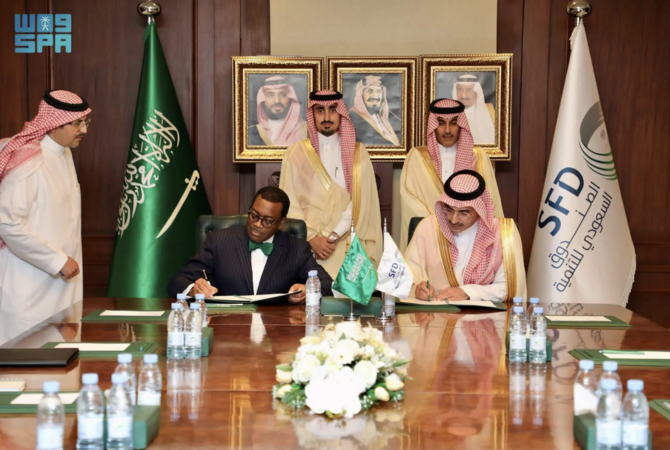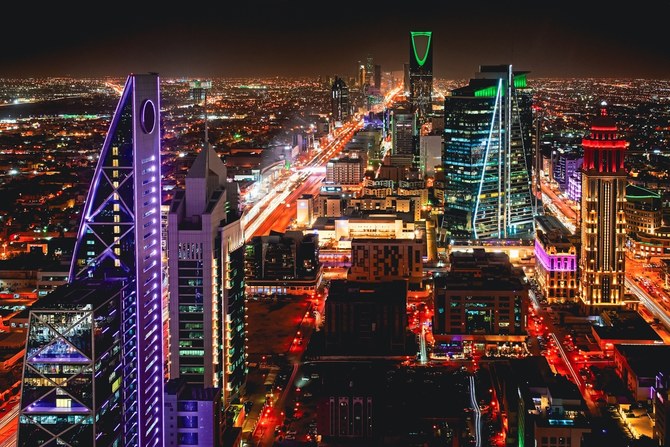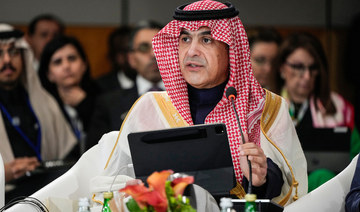DUBAI: Not many women make it to the rank of chief financial officer (CFO) in the Middle East. There are only three working in that role at the 85 companies listed on the Dubai Financial Market and Nasdaq Dubai, for example. Nadia Abu Sarah of Aramex is one of them.
But she admits that by her own high standards, she has fallen short of her childhood ambition growing up in Jordan.
“My expectation was beyond this. I wanted to be head of the International Monetary Fund (IMF) in New York,” she told Arab News.
That big ambition makes her a perfect role model for aspiring women in the Middle East business scene, long dominated by men to an even greater extent than elsewhere in the world. The fact that she got where she has at Aramex is a sign that times are changing at last.
It is also an indication of the powerful effect an encouraging family environment, and an inclusive corporate culture, can have on a young woman’s career. “I was lucky to be born into a family where my mother and father were open-minded and had traveled all over the world, and encouraged me and my sisters to follow our ambitions,” she said.
She has been with Aramex — one of the few Middle East companies to have made it in a global context — for all of her career, and has benefited from its commitment to international standards. Founded and built up by renowned Jordanian entrepreneur Fadi Ghandour, Aramex has a policy of continuity in its executive selection.
“Most of my colleagues, including the senior leadership team, have also been with the company for a long time. We have a tight corporate culture at Aramex — the company feels very much like a family,” Abu Sarah said.
She began as a financial analyst in Jordan, moving to the UAE head office in Dubai in 2010. She was made acting CFO in 2017, and rewarded with the permanent post last summer. “Fadi called me and told me I’d got the job. I saw it as a result of all the steady steps I’d been taking toward achieving my dreams, with the full support of my family and with my work colleagues around me,” she said.
Since she has been at Aramex, the company has undergone a dramatic expansion, clocking up more “firsts” than most see in their history: First delivery firm to offer express, domestic and freight forwarding services under one roof; first company from the Middle East to get a listing in New York; and a record-breaking initial public offering in Dubai after it decided to “come home” from the US in 2005.
Perhaps the comparatively enlightened policy Aramex displays toward its female employees is a contributor to that corporate success. As Abu Sarah points out, a recent Harvard Business Review study found that women outperformed men in 84 percent of the competencies that differentiate excellent leaders from average or poor ones, such as taking initiatives, acting with resilience, practicing self-development, driving for results, and displaying high integrity and honesty.
She believes that there is a sound business case for gender equality in the corporate world. “Business-critical challenges require problem-solving capabilities and creativity that can only be found through diverse leadership. Gender-diverse leadership has been proven to help companies benefit from a broader mix of perspectives and skills, leading to richer debates and more creative problem-solving, as well as clear business advantages,” she said.
Perhaps it is this diversity of decision-making that has kept Aramex profitable over the years, allowing it to weather the global financial crisis and the slowdown in regional business activity after the oil price collapse in 2014.
Financial results at the third-quarter stage last year were impacted by pricing pressure in the increasingly competitive international courier industry, where the shift toward e-commerce has led to huge opportunities, but also attracted a lot of new entrants to the business. The company is awaiting results from its all-important festive season before it publishes figures for the full year.
Abu Sarah knows the history of the company by heart, and catalogued its development from a US wholesale delivery business into a truly global operation with product offerings across the full logistics range.
“We’ve seen success in maintaining an agile, low-cost, high-margin business, and our investments in technology and innovation have placed us in good standing to compete in the competitive e-commerce space and strengthen our last-mile delivery capabilities,” she said.
The rise of e-commerce has dramatically altered the landscape of the courier industry. “The opportunities are immense — more and more e-commerce companies are emerging from all around the world, notably from Asian markets, and more people are choosing to switch to online channels to shop,” she said.
“This is also forcing several traditional retailers to tap online delivery as a key channel to sell goods to their customers. Aramex is offering warehousing and logistics solutions to help companies tap the online shopping industry.”
Aramex has an ally in the shape of Mohamed Al-Abbar, the founder of Emaar and a big advocate of the benefits of an indigenous e-commerce industry via his Noon platform. Al-Abbar is a significant shareholder in Aramex.
The firm’s operations, Abu Sarah believes, “are more efficient than ever before,” but continued efficiency is more dependent than ever on getting deliveries through the final leg of the process, where delay and confusion can undo all the good work higher up the chain.
BIO
NAME: Nadia Abu Sarah
DATE OF BIRTH: 1972, Lebanon
EDUCATION: Degree in economics and business administration, University of Jordan
• Executive development program, Oxford University, UK
• Leadership executive program, American University of Beirut
CAREER: Aramex — senior financial analyst •Executive corporate financial controller •Interim CFO •CFO
“We have a common saying in Aramex that ‘battle is won and lost in the last mile.’ Over the last several years, and undoubtedly in the years to come, the largest portion of our capital expenditure will be focused on upgrading our last-mile capabilities in the markets in which we operate, not least through our digital transformation strategy,” she said.
Much has been made of the potential presented by drones to enhance this stage of the business. She recognizes that drones and autonomous vehicles (AV) could be the next big game-changer in the courier business, but there are regulatory and political challenges to overcome before they can be introduced on a permanent basis. “Drones and AV are firmly on our technology map, and we’ll take it to the next stage as soon as it’s permitted,” she said.
Saudi Arabia has been a big focus of recent expansion. Aramex has grown in the Kingdom through the establishment of three new facilities, in response to increasing shipment volumes into and within the country.
Just over a year ago, it introduced Aramex Fleet, a crowd-sourced facility designed to speed the last-mile stage of the delivery process. The service is only available to Saudi nationals, who can enjoy the benefits of flexible working hours and earn money based on successful delivery rates. “We’re expanding massively in Saudi Arabia. The culture is changing, and we see the Fleet service as a way of increasing Saudization in the Kingdom,” Abu Sarah said.
Some 1,000 Saudi “Fleeters” have signed up since the project was launched, including a large number of women. The operator holding the record for the most successful deliveries is a woman, Abu Sarah proudly pointed out. The Fleet operation model is being rolled out across the region.
Meanwhile, Abu Sarah is determined to continue providing an example to women in business. “I find that the business environment in the GCC (Gulf Cooperation Council) is very supportive of women, both from a government and private sector perspective,” she said.
“Women remain largely outnumbered in the logistics and supply chain sector, but have steadily advanced over the past few decades. There’s room for improvement, but I’m happy to say Aramex has created an enabling environment for female employees.”
She thinks that women still have a lot to prove in business, but they are finally being given the chance. Some 27 percent of Aramex executives are women, which is high in comparison to other companies and industries, and there are plans to increase that dramatically.
“The aspiration is to increase it to the fullest extent possible,” she said. “Women are held to higher standards than male peers, and are more likely to hold other colleagues accountable. They’re also less likely to be clouded by over-confidence.”
Self-confidence is a different matter, and her career path is a template for how young ambitious women can succeed in traditionally male-dominated businesses. And who knows? The IMF has just appointed a new (female) managing director, but maybe in a few years’ time the job will become vacant again. Abu Sarah has time, and a proven track record, on her side.




